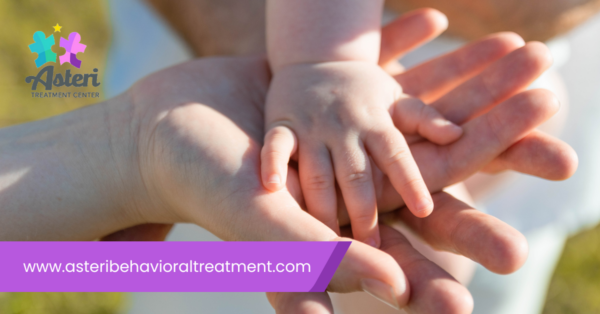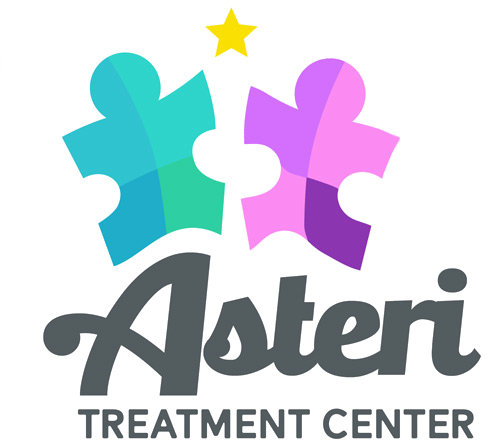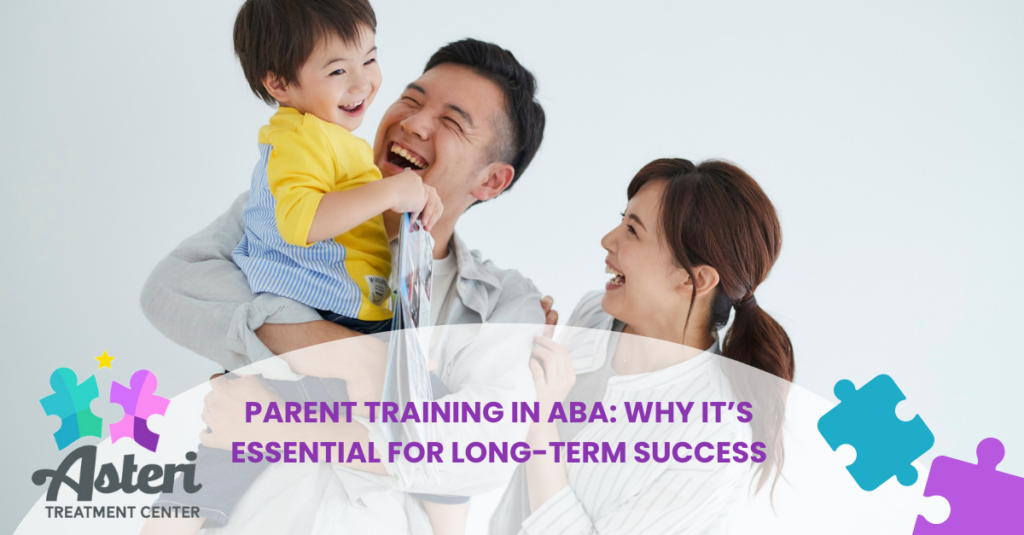Applied Behavior Analysis (ABA) therapy has gained recognition as one of the most effective interventions for children with autism spectrum disorder (ASD). While traditional ABA therapy focuses on improving a child’s behavior and communication skills, there’s another crucial part of the equation that often receives less attention but is just as essential for long-term success—parent training.
Parent training in ABA isn’t just a complementary service; it’s the key to ensuring that the skills a child develops during therapy sessions are carried over into their daily life. Let’s discuss how parent coaching works, why it matters, and the incredible outcomes it can lead to through home generalization and real-life applications.
What is Parent Training in ABA Therapy?
Parent training in ABA therapy equips parents with the tools and techniques they need to help their child thrive. While trained therapists play a critical role in a child’s developmental progress, parents and caregivers are the constant figures in a child’s life. By involving parents in the therapeutic process, ABA therapy becomes a collaborative effort that bridges the gap between clinical sessions and the real world.
Parent training typically includes:
- Coaching on key ABA principles, such as positive reinforcement and behavior management techniques.
- Guidance on practicing specific goals at home to ensure consistency across environments.
- Strategies for dealing with challenging behaviors in various settings.
- Teaching how to generalize skills, so children can apply what they learn in therapy to their everyday interactions.
The ultimate goal of parent training is to empower you as a parent or caregiver to be a confident and effective partner in your child’s progress.
Why Parent Training Matters for Long-Term Success
1. Coaching Supports Home Generalization
ABA therapy doesn’t exist in a vacuum. For a child to successfully apply what they’ve learned in therapy, those skills must be consistently reinforced at home and in day-to-day activities. Parent training ensures you’re equipped to:
- Recognize behaviors that require reinforcement,
- Set up learning opportunities during routine activities like mealtimes or play, and
- Use the same methods that the therapist employs, creating consistency for your child.
For example, imagine your child is learning to request items using words instead of gestures during therapy sessions. With proper training, you’ll know how to encourage that same skill during mealtime when your child says “milk” instead of pointing at their glass.

2. Improved Communication Between Parents and Therapists
Effective communication between parents and therapists lays the foundation for a successful ABA program. Through parent training, you’ll not only better understand what your child is learning but also feel more confident communicating with your therapy team. This ensures that:
- Individualized goals for your child remain aligned with your family’s priorities.
- You can provide therapists with valuable insight into your child’s behavior outside of therapy sessions.
- Together, you can work toward consistent methods and shared outcomes.
This collaboration strengthens the therapeutic foundation and increases the likelihood of achieving lasting results.
3. Real-Life Applications Yield Real-Life Results
One of the most valuable aspects of parent training is its focus on teaching skills that are applicable in real life. For example:
- Learning how to manage a child’s sensory sensitivities during a visit to the grocery store.
- Teaching a child how to respond to social cues during a family gathering.
- Reinforcing morning or bedtime routines to reduce stress for the entire family.
These real-world applications create opportunities for children to apply skills in meaningful contexts, making progress more tangible and far-reaching.
For instance, parents who attend regular training sessions at the Asteri Behavioral Treatment Center report that they feel more capable of addressing their child’s behaviors while out in public. Whether it’s handling a tantrum in a restaurant or navigating transitions between activities, these practices lead to more harmonious family interactions.
4. Empowering Parents Builds Confidence
Parent training not only benefits children but also empowers parents. Many parents of children with ASD experience feelings of uncertainty, stress, and even helplessness when navigating their child’s development. By undergoing training, you’ll gain:
- A deeper understanding of your child’s needs,
- Effective tools to address challenging behaviors, and
- Confidence in your ability to play an integral role in your child’s growth.
When parents feel well-supported and confident, it leads to broader success for the whole family.
How Asteri Behavioral Treatment Center Supports Parent Training
At Asteri Behavioral Treatment Center, we believe that parent involvement is a core pillar of ABA therapy. That’s why our approach goes beyond traditional therapy sessions to empower families with hands-on coaching and training.
Here’s what sets our program apart:
- Tailored Training Plans: Each family’s needs are unique. Whether your child is engaging in therapy at home, at school, or in the community, we customize our parent training program to align with your routines and priorities.
- Variety of Offerings: Learn foundational ABA techniques, practice managing specific behaviors, and explore how to generalize skills in real-life settings.
- Experienced Therapists: Our team works closely with parents to ensure a supportive and nonjudgmental learning environment. You’ll never feel like you’re navigating this alone.
- Practical & Action-Oriented Coaching: Each training session includes hands-on activities to help you put what you learn into practice immediately.
By joining our parent training program, you’ll gain the confidence, knowledge, and tools to support your child not just during therapy sessions but in every moment that follows.
Unlock Lasting Success for Your Child
Parent training in ABA therapy is more than a service; it’s a partnership that sets the stage for lifelong success. By reinforcing skills at home, communicating effectively with therapists, and applying strategies in real-life situations, you’ll help your child thrive in their unique ways.
At Asteri Behavioral Treatment Center, we’re committed to empowering parents and caregivers through every step of this process. Whether your child benefits from ABA therapy while at home, in school, or in the community, parent training ensures every moment is an opportunity for growth.

